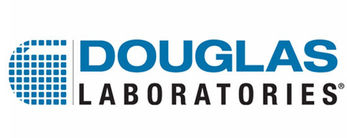Anesthesia and Children: How does this affect development?
- Dr. Amber Brooks
- Apr 13, 2019
- 4 min read
We all hope the children we love never have to endure surgery and that they are perfectly healthy but what happens when this comes up? As a parent perhaps you have run to your doctor for advice about anesthesia, whether your child must undergo dental work or something very serious it is important to know and understand the implications of the drugs used. This is especially a concern for those children on the autism spectrum or with developmental delays. This article is not intended to go into detail about autism and related developmental delays but to make you privy to the things you may want know, to educate and empower you to help your child. It is widely known that children with these delays have abnormal detoxification systems and therefore medications can be more harmful than studies have shown them to be, this can even hold true for neurotypical (neurologically normal) children.
The typical anesthesia provider is aware of the child’s medical history and any delays they may have as well as reactions to medications and their job is to make the experience as smooth as possible. In making this process smooth they may not account for the detoxification and metabolic issues at hand or may have little to no experience with these issues. When a child has abnormal detoxification or metabolic issues these affect the anesthetic choice and the outcome long term.
There have been many reports from parents that their child regressed developmentally post anesthesia and this points to a toxic insult, these insults must be minimized. Most hospitals and anesthesiologists have protocols they like to use on children and those that are difficult often get more medications so they do not have to “deal with them.” A study done by Wilder published in Anesthesiology April 2005 reported from 5,000 children born they found one exposure to anesthesia was not harmful however, more than one exposure between the ages of birth and four more than doubled the risk that a child would be diagnosed with a learning disability by age 19. The anesthetics in question were halothane a fat-soluble drug that is difficult for the liver to metabolize and nitrous oxide, which can deactivate methionine synthase, important in the methylation cycle. The risk increases with duration of exposure of the anesthetic administered.
There are three anesthesia elements, amnesia, analgesia and muscle relaxation to be familiar with when discussing this topic. Unfortunately, there is no single medication that can handle all three which is why several medications are used in the anesthesia process. The administration can be through IV or gas given via mask. Here is a short list of the most common anesthetics used.
Versed (Midazolam)- considered reasonably safe because it is short acting and not heavily metabolized. Used for sedation, amnesia and anti-anxiety.
Fentanyl (Sublimaze)- this is a potent narcotic, short acting and not heavily metabolized.
Propofol- this is a short acting agent given through IV and used to keep the child asleep. This may be a problem if an allergy exists to soy or egg as it contains both. Propofol has also been discussed as a possible exacerbating drug for those with mitochondrial disease.
Sevoflurane (Ultane)- this is administered by inhalation and only 2-5% of it is metabolized making this a great choice and is commonly used today.
Ketamine (Ketalar)- this is a hallucinogenic and is used for short-term minor anesthesia procedures (ie burns) and does not suppress respirations like many others, making this a common choice. The problem is ketamine alters sensory perception, which raises concerns for kids with sensory processing disorders (SPD) or symptoms of SPD and the affects it may have on them.
Nitrous oxide- this is used readily in dental procedures and special attention needs to be paid because it is often given with sevoflurane in a mask, together these increase the concentration of one another which may be harmful. These are given together to allow the child to fall asleep faster. Nitrous also may be a problem for those children with underlying B12 or folate problems. It is also difficult for the liver to metabolize, can be neurotoxic and cause neuropathy. You can read more about nitrous from Selzer, et al. and Baum, VC whom published studies in 2003 and 2007 respectively.
We know methylation is important for detoxification, myelin sheath formation, neurotransmitters and DNA synthesis. So any child with known symptoms or diagnosed with a methylation issue needs to be very cautious. Informing the anesthesiologist of the child’s condition and making sure the parents meet with them ahead of time is important for everyone to stay informed and know what is expected ahead of time, plus this gives you time to consult with your doctor and/or run testing applicable pre and post surgery.
Things for parents to consider prior to surgery:
Skip the nitrous oxide because many kids have a documented B12 deficiency.Consider placement of an IV without sedation to cut down on medication use.
Inform the anesthesiologist of all supplements, medications and IgE allergies.
Make sure the parents meet with the anesthesiologist ahead of time and that they understand their challenges and/or concerns.
Ask for them to keep the anesthetics as simple as possible.
Let them know about the detoxification concerns. For example, you don’t need 3 different drugs for nausea. Taking fluids post surgery to prevent dehydration and vomiting is the avenue you want to take to avoid nausea.
Consult with your doctor for a list of supplement options that can aid with detoxification. You can select the supplement that is appropriate for their age and perhaps based on ease of administration.




























